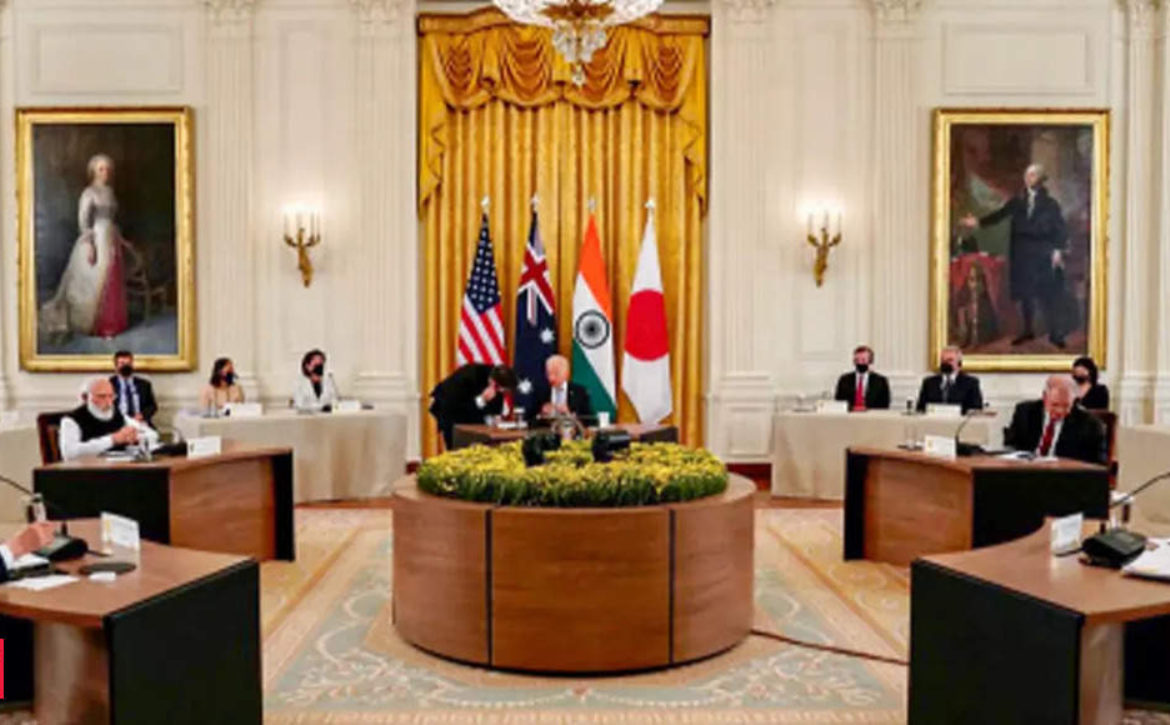
Is Quad mirroring the geopolitics of Indo-Pacific?
Expectations were high as the Quad Summit between India, Japan, Australia and the US kicked off in Washington on September 24. This first in-person meet, following on the heels of a virtual one in March, drove home the speed of geopolitical shifts currently underway. From maintaining a free and open Indo-Pacific to combating climate change, the four partner countries have turned to the Quad as the forum of choice to address mutual concerns.As the US ended its long war in Afghanistan, much has been made about the US’ much-perceived abdication of international responsibility. This was laid to rest through a forceful joint statement that articulated the Quad’s commitment to containing terrorism and securing human rights in Taliban-ruled Afghanistan. The acknowledgement from partner nations that their ‘shared futures will be written in the Indo-Pacific’ manifested in a pledge to ‘redouble efforts to ensure that the Quad is a force for regional peace, stability, security, and prosperity’. Add this to the announcement of the Australia-Britain-US (Aukus) submarine pact, and one can see that the Joe Biden administration has chosen to reimagine its engagement with the region. America will remain a key player in Asia.Also welcome was the Quad’s reaffirmed desire to work with like-minded partners. While paying traditional homage to ‘Asean centrality’, it also singled out the EU’s new Indo-Pacific cooperation strategy for support. This new document directly called out Chinese actions in the South China Sea, and human rights violations in Xinjiang. What’s more, the new strategy calls for expanded EU partnerships on security, technology and economic strategy with a range of new partners like India and South Korea. With this convergence in interests, expect more Quad-EU cooperation in the region.Australia and Japan, in particular, committed large sums towards ensuring Covid vaccine supplies for Southeast Asia and the Pacific. The Quad also vowed actions on climate, and proposed both a Green-Shipping Network, which seeks to decarbonise global shipping routes, and a Clean Hydrogen Alliance, which aims to boost Indo-Pacific trade using this revolutionary new green technology.Also announced was the formation of a Quad Infrastructure Coordination Group to better channel the grouping’s infrastructure investments in developing countries. This signals the Quad’s resolve to end the moral posturing that has so far characterised its response to China’s Belt and Road Initiative (BRI). By aligning this coordination mechanism with other initiatives like the Blue Dot Network, the Quad is ready to put in investment and political capital to compete against China’s behemoth infrastructure development initiatives.The new Quad Statement of Principles promises to also shape an ‘open, high standard innovation’ ecosystem in a direct challenge to more restrictive competitors. By putting together sectoral groups to formulate technological standards, the Quad hopes to develop key standards, roll them out globally and establish a major competitive advantage vis-a-vis more hostile players like China, which will have a Quad-designed technology architecture.The grouping also moved quickly to secure supply lines for key global technologies through the Semiconductor Supply Chain Initiative. In making such a clear power play to jointly develop and operationalise critical technologies like semiconductors, 5G and artificial intelligence (AI), the Quad has thrown down the gauntlet to China.The Quad also announced two new working groups to tackle the cyber and space technology sectors. While the elevated global threat environment surrounding cybersecurity – due in no small part to Russian and Chinese cyberattacks on key infrastructure – is driving Quad cooperation, China’s rapidly expanding and military-driven space force is the main force behind the Quad’s decision to jointly develop new space technologies.The Quad, however, faces challenges. The much-hyped Quad Vaccine Partnership has supplied only 79 million doses of its ambitious 1.2-billion dose target so far. While much of this shortfall is due to disruptions caused by India’s devastating second Covid wave, the Quad must tread carefully. If it wants to avoid a reputation for empty talk, it must focus its attention on delivering on promises made.The outcome of the summit will give little comfort to neutral Asean powers that wish to steer clear of great power competition. But competition now seems to be the order of the day, and the four Quad powers must handle their reluctant neighbours deftly.As new geopolitical and geo-economic realities emerge in the Indo-Pacific, India is now a critical node in the emerging network of variable geometries in the region. There are important opportunities in the evolving dynamic for New Delhi, as new alliances are crafted and new goals enunciated. Bold decision-making is the need of the hour.
Read More


